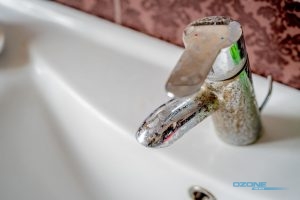There are plenty of methods to soften the water in your home. Some employ salt based water softener while others are salt-free water softener. With salt based water softener, you will notice the soap creating more bubbles. This makes for a better shower experience because the more lather you generate, which in turn removes and rinses away more water and soap residue. If left behind, film from these sources could clog pours and leave itchy, dry skin.
In addition to giving you softer skin in the shower, salt based softener allows your washing machine to leave your clothes brighter while reducing scale build-up in your showers, washing machine and toilets. The difference between salt-based and salt-free systems in the grand scheme of things is minimal.
Salt-free softeners, too, will also reduce scale buildup, leave brighter clothes and softer skin. But the main difference is salt-free systems will do so without adding sodium to the water. This is beneficial not only to the pipes in your home but for the environment as well.
High sodium content in waste water is a growing problem in cities across the country. Much of this sodium is released directly into the environment and can in part be traced to sodium-based water softener systems.
Salt-free systems, however, are maintenance free with no media replacement for up to five years. They also use no waste water, no electricity and no salt or chemicals. Salt-free softener can even offer health benefits over salt-based systems, especially for those with high-blood pressure or heart disease.











